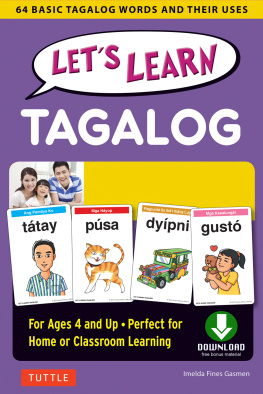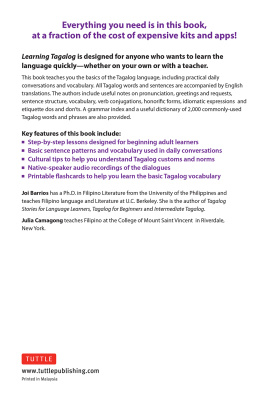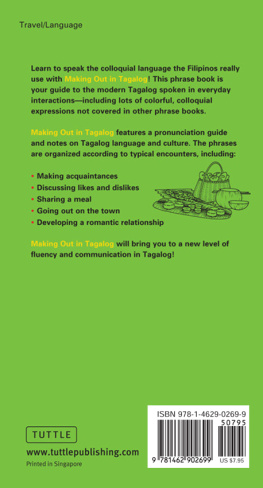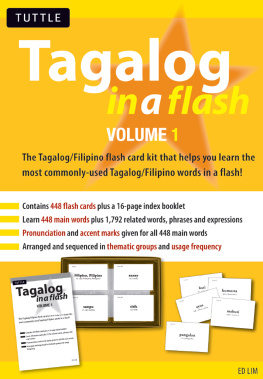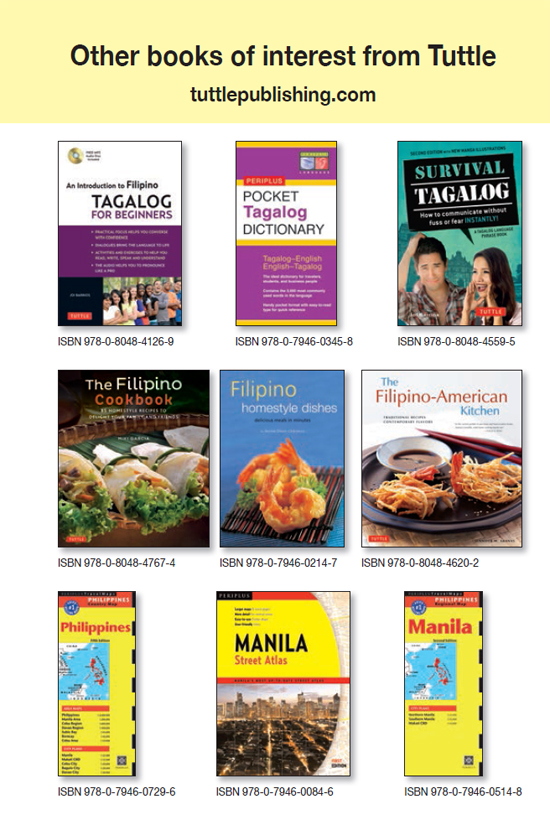
APPENDIX
The Philippines is known for its tropical weather. It only has two seasons: the wet (rainy) season and the dry season. All year long, the country tends to be hot even during the wet season. The average temperature is 25.5C (77.9F). The expression, Ang init! which means Its so hot! is usually heard around the months of March until May, when the temperature can reach as high as 34.3C (93.7F). Baguio, Sagada and Tagaytay take pride in their cold weather; they are the most common destinations for people looking to cool down.
In the cities, most people hang out at air-conditioned malls to escape the scorching hot weather. Philippines is known to have many beautiful beaches. While Boracay is paradise for the party-goers and beach bums, nature lovers can explore seven thousand more islands, such as Bohol, Cebus Bantayan and Malapascua Islands, Siargao, and Palawan. The wet season usually starts around June and can last until October. During these months, monsoon rains and typhoons can be a big nuisance for travelers and tourists. Regardless, tourists still engage in water sports and road trips to provinces close to Manila like Batangas, Pampanga, and Laguna.
It is recommended to have a contingency plan in case of bad weather. Moving forward, the months of November until February should see a drop in temperature. Ma-la-mig na! It is cold! would usually be heard around these months. These are the months, when there is no rain and the temperature is perfect for foreign tourists.
| Informal | Polite |
| Hi, how are you? | Hi, kumusta ka? | Hi, kamusta po kayo? |
| I am fine. And you? | Mabuti, ikaw? | Mabuti, kayo po? |
| Where are you going? | Saan ka pupunta? | Saan kayo pupunta? |
| Take care. | Ingat. | Ingat po (kayo). |
| The weather is nice. | Ang ganda ng panahon. | Ang ganda po ng panahon. |
| Let us eat. | Kain tayo. | Kain po tayo. |
| Just a moment | Sandali lang. | Sandali lang po. |
| Thank you. | Salamat. | Salamat po. |
| You are welcome. | Walang anuman. | Walang anuman po. |
| How are you today? | Kumusta ang araw mo? | Kumusta po ang araw ninyo? |
| I love you. | Mahal kita. | Mahal ko po kayo. |
Filipino verbs have different classifications.
The verbs used in this book have two: the um verb and the mag verb. Observe the pattern how they are conjugated to make the imperative, infinitive, completed , uncompleted and contemplated forms .
| -UM- | Imperative/Infinitive | Completed | Uncompleted | Contemplated |
| kain | kumain | kumain | kumakain | kakain |
| eat | to eat | ate | eat/eating | will eat |
| punta | pumunta | pumunta | pumupunta | pupunta |
| go | to go | went | go/going | will go |
| bili | bumili | bumili | bumibili | bibili |
| buy | to buy | bought | buy/buying | will buy |
| gising | gumising | gumising | gumigising | gigising |
| wake up | to wake up | woke up | wake up/waking up | will wake up |
| sakay | sumakay | sumakay | sumasakay | sasakay |
| ride | to ride | rode | ride/riding | will ride |
| baba | bumaba | bumaba | bumababa | bababa |
| go down | to go down | went down | go down/going down | will go down |
| takbo | tumakbo | tumakbo | tumatakbo | tatakbo |
| run | to run | ran | run/running | will run |
| alis | umalis | umalis | umaalis | aalis |
| leave | to leave | left | leave/leaving | will leave |
| uwi | umuwi | umuwi | umuuwi | uuwi |
| go home | to go home | went home | go home/going home | will go home |
| inom | uminom | uminom | umiinom | iinom |
| drink | to drink | drank | drink/drinking | will drink |
| akyat | umakyat | umakyat | umaakyat | aakyat |
| go up | to go up | went up | go up/going up | went up |
| MAG- | Imperative/Infinitive | Completed | Uncompleted | Contemplated |
| bayad | magbayad | nagbayad | nagbabayad | magbabayad |
| pay | to pay | paid | pay/paying | will pay |
| kita | magkita | nagkita | nagkikita | magkikita |
| meet up | to meet up | met up | meet up/meeting up | will meet up |
| sundo | magsundo | nagsundo | nagsusundo | magsusundo |
| pick up | to pick up | picked up | pick up/picking up | will pick up |
| lakad | maglakad | naglakad | naglalakad | maglalakad |
| walk | to walk | walked | walk/walking | will walk |
| pahinga | magpahinga | nagpahinga | nagpapahinga | magpapahinga |
| rest | to rest | rested | rest/resting | will rest |
When you have mastered the conjugation of verbs, you are now ready to start constructing sentences, using the table below.
| Verb | Subject Marker | Subject(s)Person(s) name(s), proper nouns Common noun | Object marker | Object |
| UM/MAG | si | (Common noun) | ng |
| sina | ako |
| completed/ | ang | siya |
| uncompleted/ | ang | sila |
| contemplated | mga | kayo |
| kami |
| tayo |
| ka |
Sino Who? Who is he/she? Sino siya? Who is the tour guide? Sino ang tour guide ? Ano What? What is your son/daughters name? Ano ang pangalan ng anak mo? What are we eating?/What is the food? (lit.) Ano ang pagkain? Saan Where? Where are you going? Saan ka pupunta? Where did you come from? Saan ka galing? Nasaan Where? Where are the students? Nasaan ang mga estudyante? Where is the CR? Nasaan ang CR? Ilan How many? How many siblings do you have? Ilan ang kapatid mo? How many people are in the meeting room? Ilan ang tao sa meeting room ? Magkano How much? How much is the coffee? Magkano ang kape? How much is the massage? Magkano ang masahe? Kailan When? When is your birthday? Kailan ang bertdey mo?
eroplano airplane kotse car dyip jeep jip jeepney taksi taxi traysikel tricycle barko ship bangka boat
Contents
Published by Tuttle Publishing, an imprint of Periplus Editions (HK) Ltd. www.tuttlepublishing.com Copyright 2016 Periplus Editions (HK) Ltd. All rights reserved.
Next page

